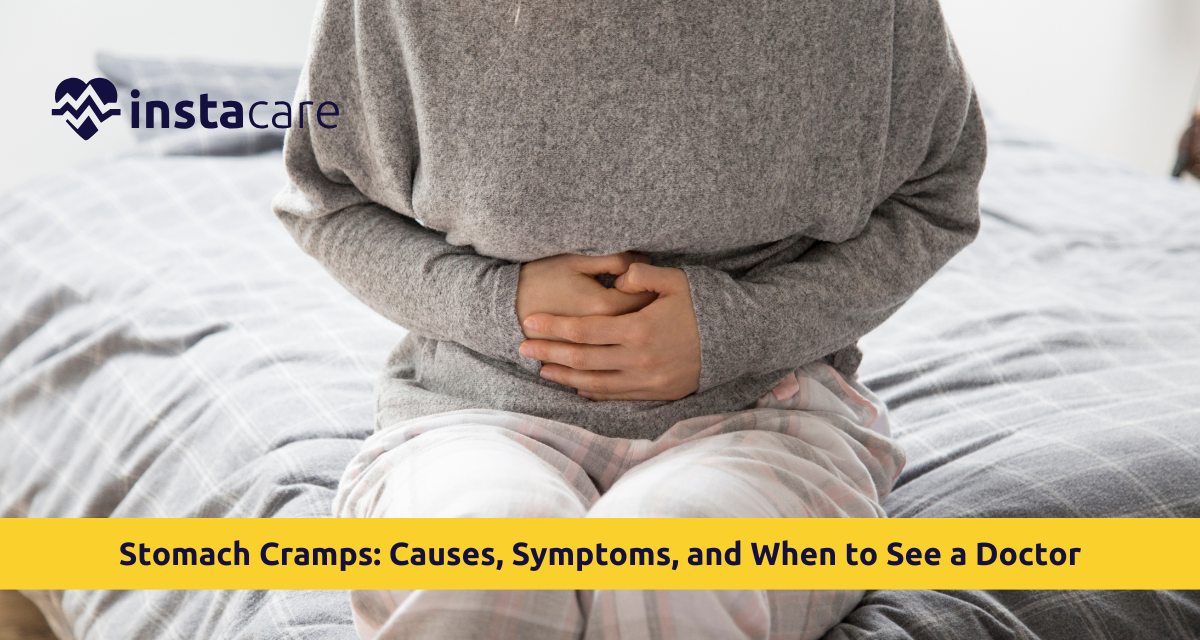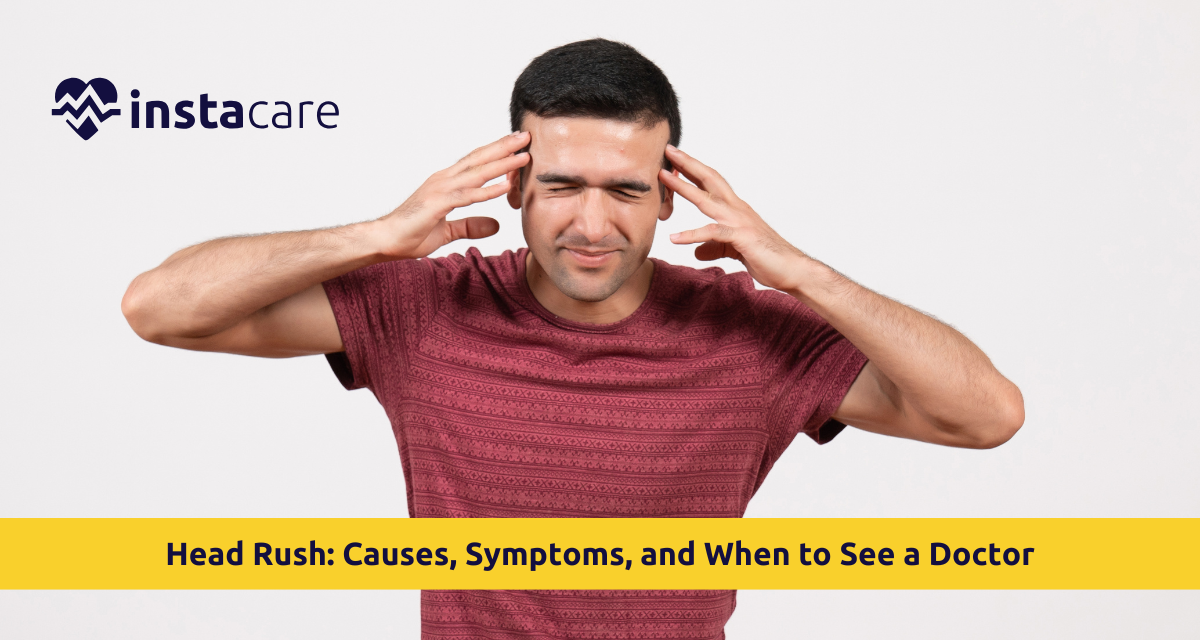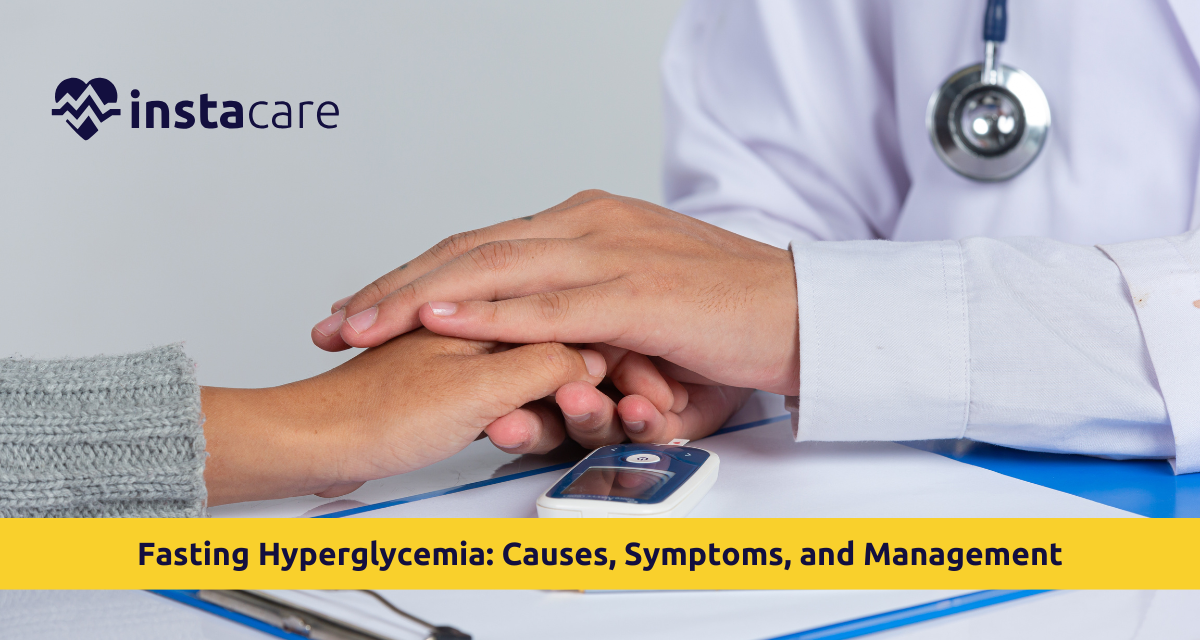Read Health Related Articles, Tips and Updates
Last Updated On Thursday, March 5, 2026

Stomach Cramps: Causes, Symptoms, and When to See a Doctor
One of the most prevalent forms of abdominal pain is a cramped stomach. This may be mild stomach pains or severe sharp, pungent pain. They are caused by a mere incidence of some digestive complications such as gas or medical conditions of a more serious nature. Stomach cramps might not be harmful but when they are frequent or intense, the doctor will be administered treatment. The reason, symptoms, and treatment of discomfort can be known, which help to overcome it.

Head Rush: Causes, Symptoms, and When to See a Doctor
A head rush is an acute sensation of lightheadedness or sudden dizziness, which is most commonly felt when a person rises up so fast. Although they are generally harmless and short-lived, recurrent attacks can be indicators of a medical concern. Knowing the causes of head rushes, the groups at risk, and the need to get medical attention will help get a hold of the symptoms.

Lower Back Pain: Causes, Symptoms, and Effective Treatments
One of the most widespread health problems is lower back pain. It can influence individuals of either lifestyle or occupation including office employees and professionals in any sport. Whereas some of the cases are mild and short-term, others can progress into chronic lower back pain, which disrupts normal activities. It is possible to manage the pain in the lower back, avoid chronic problems, and prevent complications by understanding the reasons of the pain, its symptoms, and what treatments can alleviate the pain.

رمضان میں جگر کی صحت کے لیے مفید غذائیں
Maintaining liver health during Ramadan is essential because fasting changes eating patterns and metabolism. Choosing the right foods at sehri and iftar can support the liver’s natural detoxification process and improve digestion. Nutrient-rich foods such as leafy vegetables, fruits, whole grains, and healthy fats help protect liver cells and maintain energy levels throughout the fasting day. A balanced diet during Ramadan not only keeps the liver functioning properly but also supports overall health and wellness.

Back Pain: Causes, Symptoms, and Effective Treatment Options
One of the most widespread health-related complaints on the global scale is back pain, which cuts across ages. It may be mild or extreme intense pain that disrupts the daily routine of life. Poor posture, injury, or other causes of back pain, which are the symptoms, and ways of treatment, knowing the reasons behind the pain, and ways of managing it will help you prevent the recurrence of these problems.

Fasting Hyperglycemia: Causes, Symptoms, and Management
Fasting hyperglycemia is the increased blood sugar level following an overnight starvation, which is usually determined in the morning before breakfast. Naturally, it is typical of people with diabetes; however, it may also arise in those with prediabetes or insulin resistance. Continuous high levels of fasting blood sugar can be an indicator of poor glucose regulation and predisposition to long-term complications. It is imperative to learn its causes, symptoms and management techniques to ensure normal levels of blood glucose.

Dizziness: Causes, Symptoms, and When to See a Doctor
Dizziness is a common, yet unpleasant sensation that can develop to a slight lightheadedness to the extreme twirling. Dizziness is not unusual to a number of people, but when it occurs frequently and consequently, severely, then it may be an indication of a complication to the health. Learning why people feel dizzy, what are the symptoms and when to call a physician will prevent complications and will contribute to the improvement of the quality of life.

روزہ رکھنے کے دوران بلڈ پریشر کے مریضوں کے لیے احتیاطی تدابیر
Fasting during Ramadan can be spiritually rewarding, but for individuals with high blood pressure, it requires careful planning and medical guidance. Changes in meal timing, hydration levels, and medication schedules can directly affect blood pressure control. This article discusses essential precautions, dietary adjustments, medication management, and warning signs that hypertensive patients should consider to fast safely and maintain stable blood pressure throughout Ramadan.

Scar Revision: Treatments, Benefits, and What to Expect
Scars are an inherent aspect of healing, although they can be reddish, elevated or aesthetically displeasing. Scar revision is a medical procedure that is used to enhance the tone, texture and size of scars. Even though it will not entirely remove a scar, with the current methods, a scar can be affected and made to become less visible and regain confidence. This manual describes the kind of scars that are treated, procedures that are offered, recovery expectations, and benefits that may be expected.
